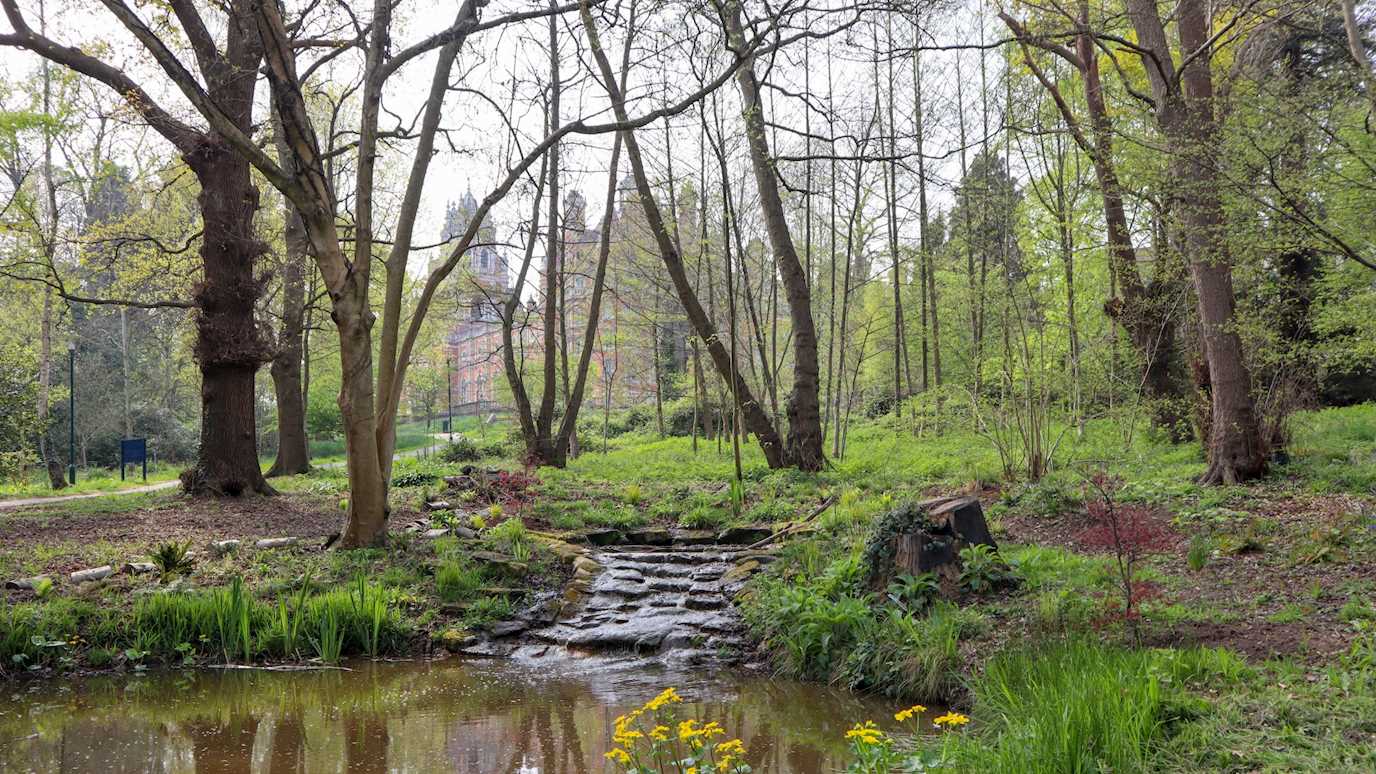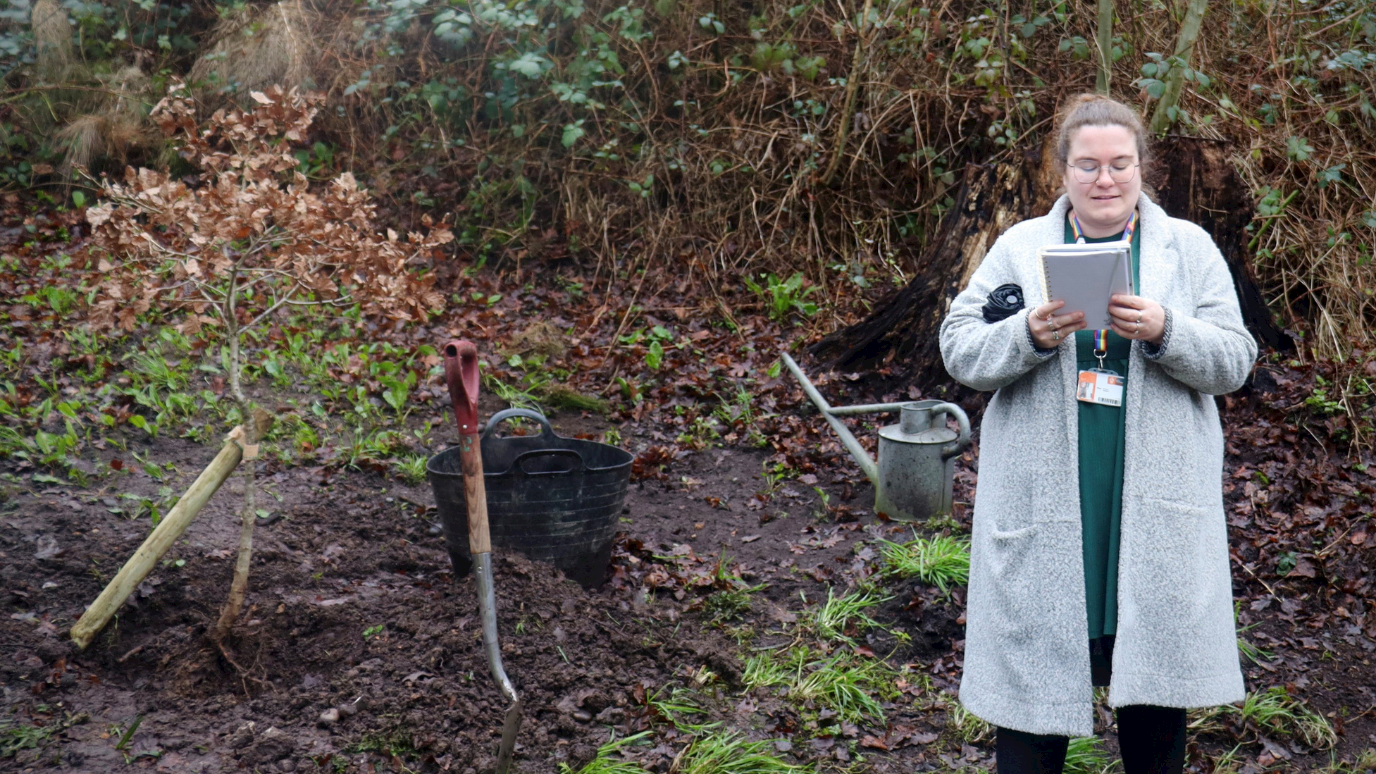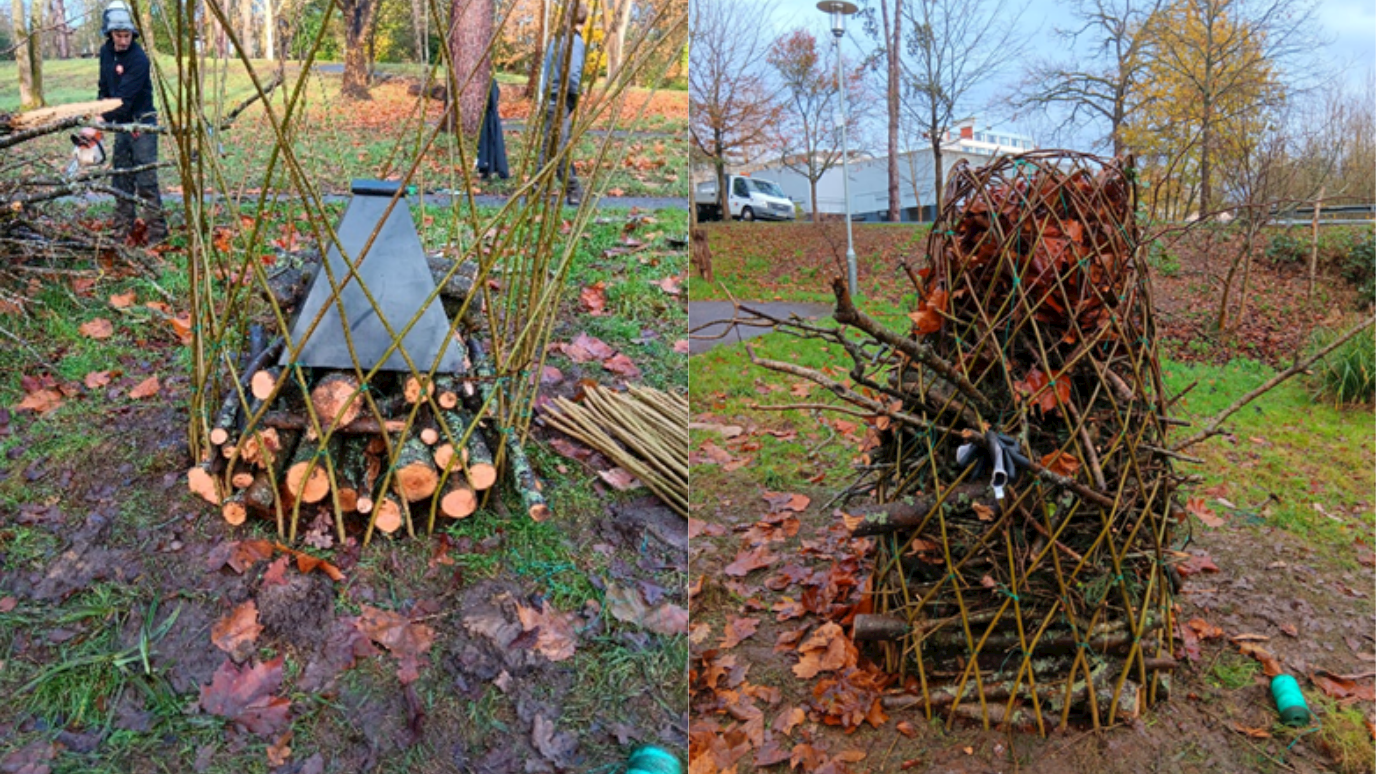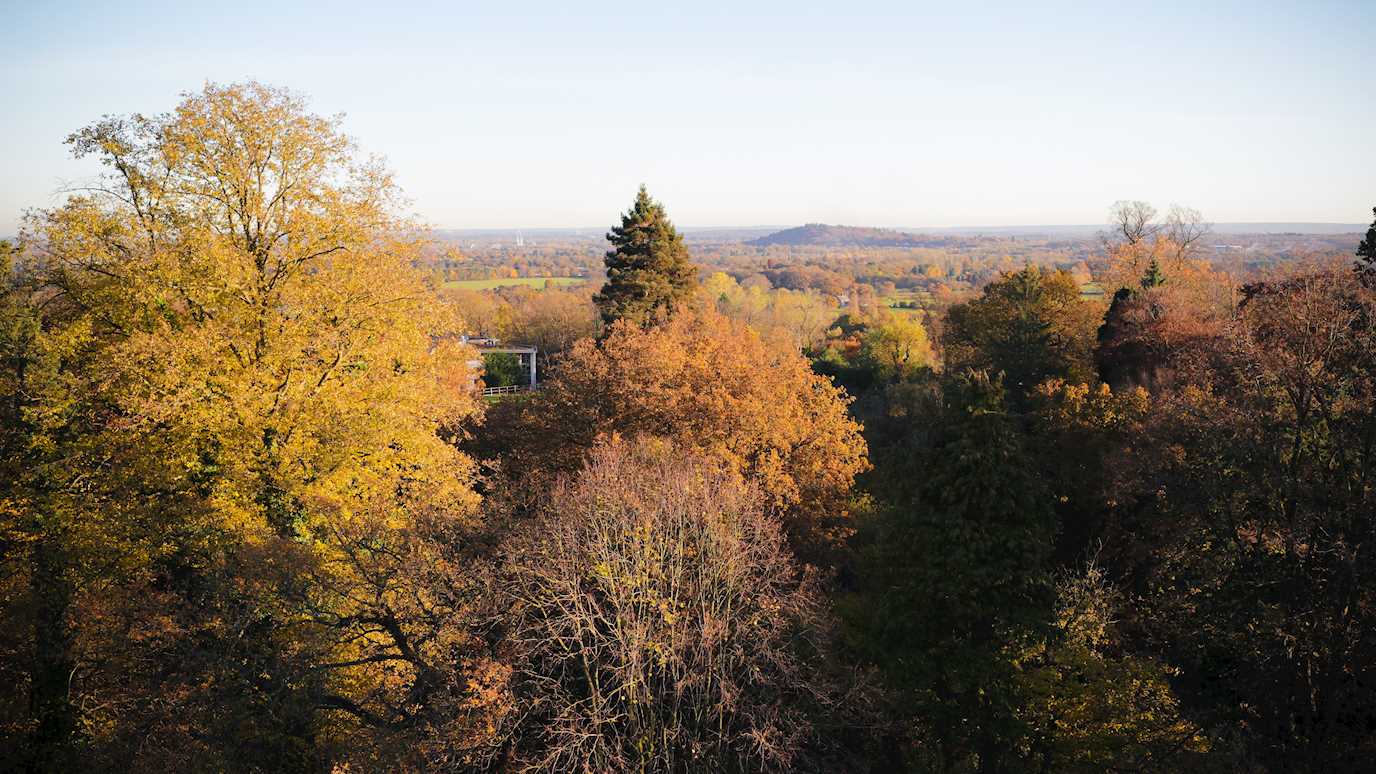We are committed to championing campus biodiversity and promoting academic and collaborative engagement opportunities across the natural campus.
Royal Holloway’s Egham campus exists within a mature 135-acre parkland estate, characterised by a variety of woodland, meadows and watercourses.
The campus, which is part of a vital connective green corridor, hosts a wide range of natural life. The mix of meadow and lawns has a diversity of floral species including a population of Bee Orchids; the woodlands across the site are host to a variety of invertebrates, including stag beetle and fungi; and a natural aquifer feeds several springs and stream systems that are inhabited by our resident bullhead fish and Egrets.
With its diverse ecosystem, this provides an ideal setting for studying life sciences like ecology, conservation, and geography, as well as inspiring fields such as performing arts, creative writing, and health studies.
Our London campus also provides access to a range of green spaces and urban environments, that offer very different habitats and human interactions to our Egham estate.
Supporting and facilitating research and teaching that utilises the grounds’ unique benefits is a key focus, and the Living Campus initiative looks to actively advance this mission.
A brief history of the estate
The original college was founded on Mount Lee, a large farm with a name meaning sheltered hill in Old English. This reflects the unique topography, which features a 50m drop from one side to the other. This change in level offers varying conditions marked by a change in geology, numerous surface watercourses, and sheltered areas with microclimates that foster rich vegetation and wildlife.
The estate retains traces of its 140-year history since the establishment of Royal Holloway College, including the introduction of unusual plants, many of which are now in maturity, the formalisation of ponds and watercourses, and the numerous paths that provide access through the estate.
Activity before the college’s inception also remains evident on campus where centuries of organised farming resulted in large areas of meadow managed by grazing and woodland managed for productive purposes. This legacy results in a site that provides a rich biodiversity resource at a local level, as well as being an important part of a wider regional green corridor that includes areas such as Windsor Great Park and Thames Basin Heaths.
Further information
Volunteering on campus
The gardening team work with student volunteers to complete conservational works in and around the ponds. Together, they manage aquatic weeds, improve water flow and improve habitat continuity, while also preparing areas for new planting schemes.
This hands-on experience not only allows students to develop new skills but also provides insights into operational management and how to care of the natural environment.
More information on Royal Holloway can be found here.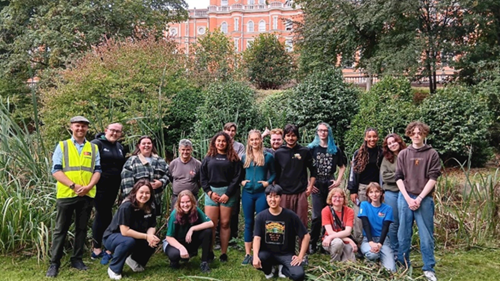
Biological Sciences Department research and teaching
We use the campus extensively, yet sensitively, for various teaching, research and outreach activities - from our on-campus apiary supporting our world-leading research on bees to engaging teaching activities for the next generation of scientists.
In our first-year module ‘Ecology and Conservation,' students engage in a hands-on project using model clay caterpillars to assess predation levels based on colour differences (green and red) by measuring bite marks inflicted by birds and mammals. Students create hundreds of these caterpillars, strategically placing them across campus for a week.
Subsequently, in small groups, students formulate questions or hypotheses, for example comparing predation between native versus non-native trees or different-sized caterpillars. Whatever the students choose to study, the results are always fascinating.
In the final part of the practical, students conduct a campus-wide bird survey, identifying and comparing bird species and abundance across various habitats.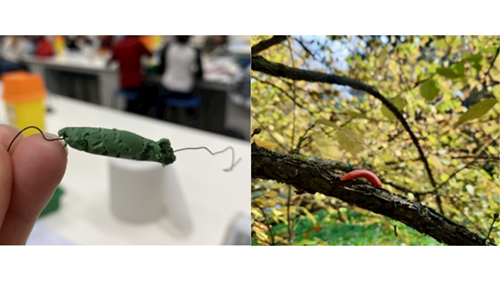
Omnidrome
Omnidrome is a world-leading hub for research, innovation, education and knowledge exchange in air, land, and water-based drones, robotics and autonomous vehicles.
The testing and training facility at Royal Holloway’s Egham campus features a purpose-built hangar for developing and testing specialist and experimental drones, along with dedicated outdoor areas for flight training in a controlled environment.
Omnidrome focuses on educating and supporting students in technical and scientific skills for geospatial analysis, environmental monitoring, and ecological restoration projects. Planned on-campus projects include:
- Aiding the gardening team with aerial mapping and progress surveying of diverse project sites (meadows, Canada copse, etc.).
- Initiating a PhD project on mapping the seasonal availability of food plants for bumble bees.
- Assessing campus nighttime artificial light coverage.
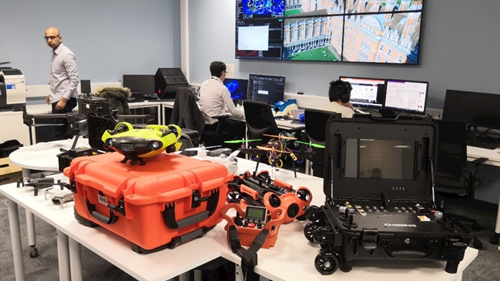
Seasonal walking tours
Aligned with Royal Holloway’s Autumn, Spring and Summer terms, we host seasonal Living Campus walking tours for students and staff with Daniel Steel, our Head Gardener, and Jonathan Howe, our External Spaces Business Partner.
As well as highlighting seasonal features and land management practices, the tours aim to familiarise staff and students with the Living Campus and help them explore how it can be used within their research and teaching.










